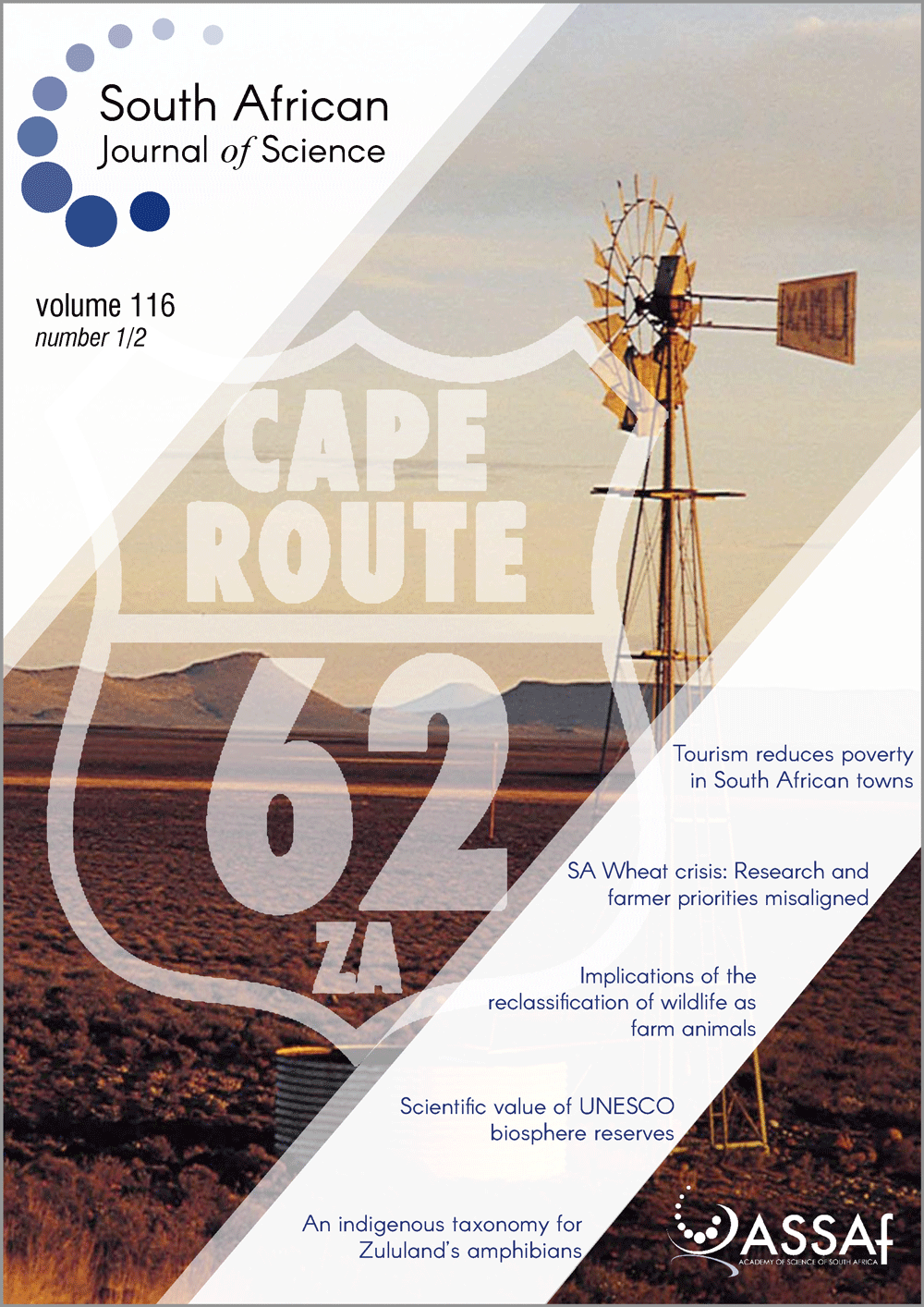Spatio-seasonal variations in the faecal bacterial community of Zulu sheep grazing in communally managed rangeland
DOI:
https://doi.org/10.17159/sajs.2020/6313Keywords:
16S rRNA gene diversity, culture-independent analysis, ruminants, high-throughput sequencingAbstract
The adaptation of Zulu (Nguni) sheep (Ovis aries) to environmental stress and survival under extensive conditions makes them uniquely important to rural Nguni farmers of South Africa. Here, the faecal bacterial community of five Zulu sheep populations managed under extensive conditions across summer and winter seasons was investigated in order to understand the influence of prevailing seasonal factors. Bacterial operational taxonomic units (OTUs)/species (at 97% 16S rRNA gene similarity) in Zulu sheep faeces were more diverse in winter than in summer at most (80%) sites and varied between seasons at specific sites. Firmicutes was the most abundant phyla in both summer and winter seasons, while the relative abundance of Actinobacteria reduced in 80% of sites from summer to winter. The genera (or family) such as Akkermansia, Eubacterium coprostanoligenes group, Intestinibacter, R-7 group (family Christensenellaceae), Ruminococcus, Ruminoclostridium, Treponema and UCG-005 (family Ruminococcaceae) were relatively more abundant and belonged to a ‘core microbiome’ of Zulu sheep faeces. Between seasons, Acinetobacter, Jeotgalicoccus, Methanobrevibacter, Phascolarctobacterium and Planomicrobium were differentially abundant. Overall, results suggest increased richness and diversity of bacteria from summer to winter which may be related to spatio-seasonal variations in grazing management, forage types and availability. This observation serves as baseline evidence, justifying further controlled studies investigating, amongst other factors, effects of forage type and availability across seasons on ruminal microbiota of Zulu sheep grazing in communally managed rangelands.
Significance:
- Spatio-seasonal dynamics in the bacterial community of Zulu sheep faeces suggest differences in forage type and availability across sites potentially influence faecal bacteria of Zulu sheep.
- The study provides a basis for further controlled studies investigating the influence of environmental factors on rumen and faecal microbiomes of Zulu sheep.
Open data set:
Published
Issue
Section
License

All articles are published under a Creative Commons Attribution 4.0 International Licence
Copyright is retained by the authors. Readers are welcome to reproduce, share and adapt the content without permission provided the source is attributed.
Disclaimer: The publisher and editors accept no responsibility for statements made by the authors
How to Cite
- Abstract 999
- PDF 628
- EPUB 289
- XML 457












.png)